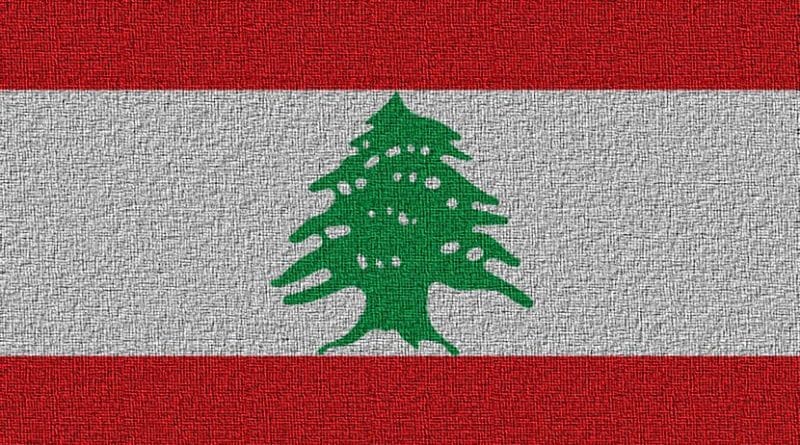Lebanon’s Sunni Tangle – OpEd
As if the discovery of sophisticated Hezbollah tunnels penetrating into Israel and violating the UN truce terms was not enough of an embarrassment to the Lebanese government, the political situation is deadlocked as well. Hezbollah is also at the centre of that débacle.
Lebanon went to the polls on 6 May, 2018. Seven months later, the political parties are at deadlock over forming a new government.
Nine long years had passed since the previous parliamentary elections which, according to the constitution, were supposed to be held every four years. But there were no elections in 2014, and ever since ministers and politicians have voted again and again to postpone elections and extend the current parliament, citing security concerns, political crises and disputes over the election law.
When the new poll was finally held, the political landscape within Lebanon and in the region had changed dramatically. The intervening period had seen both the rise and the battlefield defeat of Islamic State in neighbouring Iraq and Syria, a dramatic extension of Iranian power in both countries, the direct involvement of Hezbollah military forces – composed, be it remembered, of young Lebanese fighters – in the civil conflict in Syria, acting under direct Iranian command, and a huge build-up of sophisticated Iranian weaponry in Lebanon itself, together with the development of arms manufacturing facilities on a massive scale.
Moreover, the previous pro-Western, Saudi-backed political alliance led by prime minister Saad Hariri, was crumbling. Over the nine years from 2009 Hariri’s government had included members of the increasingly confident, Iran-backed Hezbollah – one obvious sign of Iran extending its power base into Lebanon by way of its subsidiary. This was a dangerous development that Saudi Arabia, leader of the Sunni world, was determined to nip in the bud.
In November 2017, urged on, it is surmised, by Saudi crown prince Mohammed bin Salman, Hariri travelled to Riyadh, and from the Saudi capital he resigned as Lebanon’s prime minister, incorporating a resounding denunciation of Hezbollah and Iran in his announcement.
The resultant political storm could not be contained. He stayed abroad for two weeks, then travelled back to Lebanon where he withdrew his resignation, and resumed his office. But all was far from well. Hariri could never be reconciled to the increasingly dominant position that Hezbollah was assuming within the Lebanese body politic. Regardless of his political objections, his personal reasons are overwhelming.
On February 14, 2005, his father, Rafik Hariri, one-time prime minister and a powerful opponent of Syrian and Hezbollah dominance in Lebanon, was assassinated. The subsequent judicial proceedings, which are still ongoing after 13 years, have pretty well established that the murder was ordered by Bashar al Assad, Syria’s president, and carried out by Hezbollah operatives. So Saad Hariri had business left unfinished by his father to complete. There is no doubt that Rafik would have been appalled by the extent to which Iran has gained control over Lebanon’s military power, and is using the country as a manufacturing base from which to arm the Shi’ite crescent that it is consolidating. For Iran is building and equipping a Shi’ite empire extending from Yemen, via Bahrain, Iran, Iraq, Syria and through to Lebanon.
There are well-founded reports that Iran has established facilities, managed and operated by Hezbollah, for manufacturing missiles and other weapons in Lebanon. The weaponry includes surface-to-surface and surface-to-sea missiles, torpedoes, spy drones, anti-tank missiles, and fast armoured boats. There are reports of at least two underground facilities constructed in Lebanon for manufacturing missiles and other weaponry including the Fateh 110, a medium-range missile with a range of approximately 300 kilometers − enough to cover most of Israel − and capable of carrying a half-ton warhead.
The May parliamentary elections, which employed a proportional representation system for the first time, saw the collapse of Hariri’s Future Movement (FM) and the continued growth of Hezbollah. The FM lost 13 seats while Hezbollah gained three. But the biggest winner was the Free Patriotic Movement and its allies, led by Gebran Bassil, which emerged as the largest bloc with 29 members.
Bassil, the son-in-law of Lebanon’s president Michel Aoun, was criticized by many Lebanese politicians for a media interview in December 2017 in which he stated that Lebanon does not have an ideological problem with Israel, and that he was not against Israel “living in security.”
Seven months after the elections, however, talks about the formation of a new government in Lebanon remain at an impasse. The complex sectarian rules governing Lebanon’s constitution mean that Hariri remains prime minister designate, because that office is reserved for a Sunni Muslim and Bassil, a Maronite Christian, is debarred from filling it. But at the heart of the disagreement between the various political factions is how much power Hezbollah should exercise.
Hezbollah is, of course, a Shia Muslim organization, but in the complex Lebanese political world it actually supports some smaller Sunni political groups. A particular bone of contention in the discussions is whether these Sunni bodies should be included along with Hezbollah in the formation of the new government. In particular Hezbollah has been demanding that one of its Sunni allies be awarded a ministerial seat in the Cabinet. If granted, this would come out of the prime minister’s share of Sunni seats, and Hariri rejects the proposal outright.
This is the so-called “Sunni tangle”. If past experience is anything to go by, unravelling it could take not months, but years.

